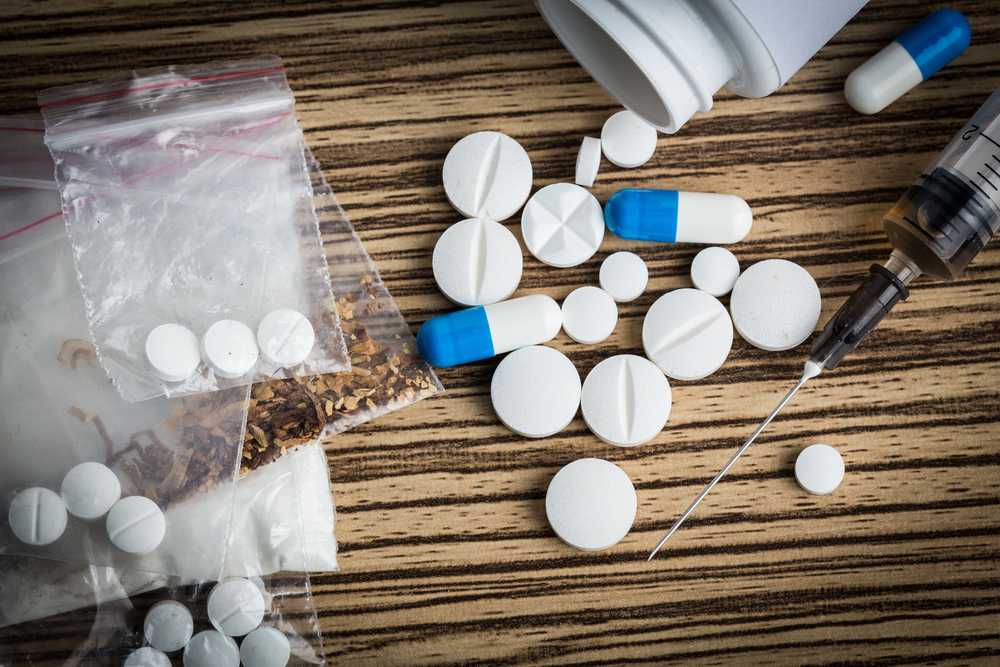
What are Upper and Downer Drugs?
Legacy Healing Center Blog
Sometimes life can be difficult. You feel tired, run-down, scared, or uncertain, or you constantly feel on edge, anxious and nervous, or wired all the time. So you think, “what’s wrong with using a downer to help calm or relax me?”
Uppers and downers are drugs used in illicit manners (either illegal drugs or prescription medications used outside of the prescribed method) that alter your mind in specific ways. Stimulants, informally known as uppers, speed up the body’s central nervous system (CNS)1.On the other hand, downers are depressant drugs that slow down your systems.
Both uppers and downers provide you with very distinct physical and mental sensations, and it may be tempting to mix them to “balance them out.” Doing so can be disastrous with catastrophic effects. The best thing to do is go through drug detox in a safe, supervised program such as at Legacy Healing Centers to help you break free from uppers or downers and reclaim the life you were meant to have.
What is Considered a Stimulant Drug and What Does it Do?
Stimulant drugs stimulate the CNS and other systems to speed up. But how do you know what is considered a stimulant drug? There are a lot of drugs that act as stimulants. Some of the most common ones include:
- Amphetamines, including Adderall and Ritalin
- Cocaine
- Methamphetamines
Street names for these drugs may include:
- Coke
- Crack
- Crank
- Crystal
- Glass
- Ice
- Meth
- Speed
- Tweak1
What Does a Stimulant Drug Do?
Uppers come in various forms and usages, and they all have similar responses. Stimulant drugs can cause the following mental, physical, and emotional sensations:
- A “rush,” “flash,” or “high”
- Sense of exhilaration
- Enhanced self-esteem
- Heightened sense of sexual prowess
- Improved mental or physical performance
- Wakefulness and alertness
- Reduced appetite
- Increased activity
Unfortunately, after these stimulants wear off, you are left with the “crash” in the aftermath. This typically leaves you feeling extremely fatigued, depressed, anxious, or craving the drug1. When these feelings kick in, you are more likely to use uppers again to feel that euphoric high. You may become paranoid, agitated, hostile, aggressive, panicky, suicidal, or even homicidal with chronic use1.
Don’t wait until it’s too late to ask for help. You can safely detox from uppers or stimulants. Find a reputable drug rehab in Florida or near you today.
What is a Depressant Drug, and What Does it Do?
Depressants and downers are the opposite of stimulants — they slow systems in the body. While there are some medically appropriate ways to use depressants, they are frequently used illegally, including schedule I drugs, which are always illegal and have no medical value.
Common depressants include:
- Alcohol
- Barbituates
- Benzodiazepines
- Quaaludes
- GHB
- Rohypnol
Common street names include:
- Barbs
- Benzos
- Georgia homeboy
- Grievous bodily harm
- Liquid E
- Roofies
- Tranks1
What Do Downers Do?
While some depressants can be useful when administered and taken by physician prescription, they can also be used in nefarious and dangerous ways. Depressants may:
- Reduce reaction time
- Lower inhibition
- Impair mental function
- Cause relaxation or sleepiness
- Promote mild euphoria
- Cause temporary amnesia or blackout
If you have a struggle with alcohol or other downers, reach out to an alcohol rehab near you like Legacy Healing and break the chain of addiction to depressant drugs.
How Do Stimulants and Depressant Drugs Affect the Brain and Body?
Let’s start in the brain. Stimulants cause the release of certain hormone messengers, such as serotonin and dopamine, that regulate feelings of pleasure and euphoria. But when these messengers are artificially stimulated, it takes a higher dosage needed to get that feeling again. And the more you use, the harder it is to get the feeling naturally. Depressants often have the same results, but with opposite sensations of calm, relaxation, or reduced anxiety.
Excessive use of stimulants may cause an increase in:
- Blood pressure
- Heart rate
- Dizziness
- Rapid breathing
- Insomnia
- Tremors
- Vomiting
The toll depressant drugs may take on the body can include:
- Slurred speech
- Loss of muscle coordination
- Weakness
- Headaches
- Lightheadedness
- Blurred vision
- Low blood pressure
- Slowed breathing.
Why is mixing stimulants and depressants dangerous?
The short answer is that it sends mixed signals to your body. The longer answer is that the combination of drugs tends to amplify the effects of both drugs, sending your body into a feedback loop, in which it not only craves both, but expects both together2.
This can have dire health consequences. In fact, in 62% of meth cases in emergency rooms, the patient has combined meth (a stimulant) with a depressant drug2. This complicates the treatment of the patient.
Contact Us
Whether a loved one or you have found yourself in a merry-go-round of uppers and downers, there’s a way to get off the crazy ride and get back to a life in which you’re in control, happy, and healthy.
When you’re ready, contact us at 888-711-5891. When you call, you’ll talk to a treatment specialist. We are not here to judge you, but rather to partner with you as you take the first steps on your road to recovery. We are Ladies and Gentlemen, caring for Ladies and Gentlemen. Reach out today and get off that crazy merry-go-round.
Resources:
1: Drugs of abuse (2017 edition) – DEA. (n.d.). Retrieved May 31, 2022, from https://www.dea.gov/sites/default/files/2018-06/drug_of_abuse.pdf
2: Mixing uppers with Downers – Bad Idea?: GO ASK Alice! dummy image. (n.d.). Retrieved May 31, 2022, from https://goaskalice.columbia.edu/answered-questions/mixing-uppers-downers-bad-idea